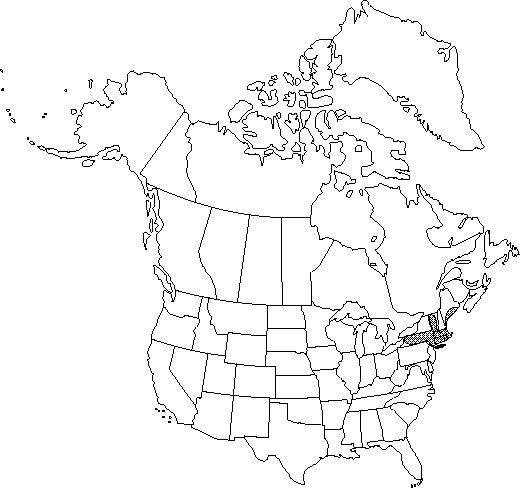Difference between revisions of "Ulmus glabra"
Fl. Angl., 95. 1762.
imported>Volume Importer |
TammyCharron (talk | contribs) |
||
| Line 15: | Line 15: | ||
|synonyms={{Treatment/ID/Synonym | |synonyms={{Treatment/ID/Synonym | ||
|name=Ulmus montana | |name=Ulmus montana | ||
| − | |authority= | + | |authority=Stokes |
|rank=species | |rank=species | ||
}} {{Treatment/ID/Synonym | }} {{Treatment/ID/Synonym | ||
| Line 38: | Line 38: | ||
|introduced=true | |introduced=true | ||
|discussion=<p>In the absence of carefully documented naturalized populations, the North American distribution of <i>Ulmus glabra</i> is very poorly known. The species is established locally in British Columbia and California, and probably elsewhere. It has been reported from Newfoundland, Nova Scotia, Ontario, District of Columbia, Illinois, Iowa, Michigan, Minnesota, Missouri, Pennsylvania, and Virginia.</p><!-- | |discussion=<p>In the absence of carefully documented naturalized populations, the North American distribution of <i>Ulmus glabra</i> is very poorly known. The species is established locally in British Columbia and California, and probably elsewhere. It has been reported from Newfoundland, Nova Scotia, Ontario, District of Columbia, Illinois, Iowa, Michigan, Minnesota, Missouri, Pennsylvania, and Virginia.</p><!-- | ||
| − | --><p><i>Ulmus glabra</i> is similar to <i>U. rubra</i> in leaf morphology but may be readily distinguished by its smooth bark and glabrous samaras. Some of the weeping elms found in cultivation are varieties of <i>U. glabra</i>. The common name wych is derived from Gallic and means "drooping."</p> | + | --><p><i>Ulmus glabra</i> is similar to <i>U. rubra</i> in leaf morphology but may be readily distinguished by its smooth bark and glabrous samaras. Some of the weeping elms found in cultivation are varieties of <i>U. glabra</i>. The common name wych is derived from Gallic and means "drooping." The name <i>U. montana</i> Withering, an isonym, also pertains here.</p> |
|tables= | |tables= | ||
|references= | |references= | ||
Latest revision as of 16:47, 13 December 2021
Trees, to 40 m; trunks often multiple; crowns spreading, broadly rounded or ovate. Bark gray, smooth, furrowed with age. Wood hard. Branches spreading to pendulous, glabrous, branchlets lacking corky wings; twigs ash-gray to red-brown, villous when young. Buds obtuse; scales reddish brown, glabrous to marginally white-ciliate. Leaves: petiole 2-7 mm, densely villous. Leaf blade elliptic to obovate, (4-)7-14(-16) × (3-)4.5-8(-10) cm, base strongly oblique with lowermost lobe strongly overlapping, covering petiole, margins doubly serrate, apex long-acuminate to cuspidate, sometimes with 3 acuminate lobes at broad apex; surfaces abaxially pale green, villous with woolly tufts in vein axils, adaxially dark green, strigose to scabrous, margins not ciliate. Inflorescences dense fascicles, 8-20-flowered, less than 2.5 cm, flowers and fruits not pendulous; pedicel short, 0.4-0.8 mm, densely pubescent. Flowers: calyx lobed to ca. 1/2 length, lobes 4-8, reddish pubescent; stamens 5-6, purplish; stigmas reddish, with white pubescence. Samaras light greenish brown, elliptic to obovate with blunt or rounded tip, 1.5-2.5 × 1-1.8 mm, broadly winged, pubescent only along central vein of wing, apical cleft minute, obscured by persistent, curved styles. Seeds thickened, not inflated. 2n = 28.
Phenology: Flowering spring–early summer.
Habitat: Along margins of woodlands and disturbed sites
Elevation: 0-300 m
Distribution

Introduced; Conn., Maine, Mass., N.Y., R.I., Vt., native to Europe and Asia.
Discussion
In the absence of carefully documented naturalized populations, the North American distribution of Ulmus glabra is very poorly known. The species is established locally in British Columbia and California, and probably elsewhere. It has been reported from Newfoundland, Nova Scotia, Ontario, District of Columbia, Illinois, Iowa, Michigan, Minnesota, Missouri, Pennsylvania, and Virginia.
Ulmus glabra is similar to U. rubra in leaf morphology but may be readily distinguished by its smooth bark and glabrous samaras. Some of the weeping elms found in cultivation are varieties of U. glabra. The common name wych is derived from Gallic and means "drooping." The name U. montana Withering, an isonym, also pertains here.
Selected References
None.